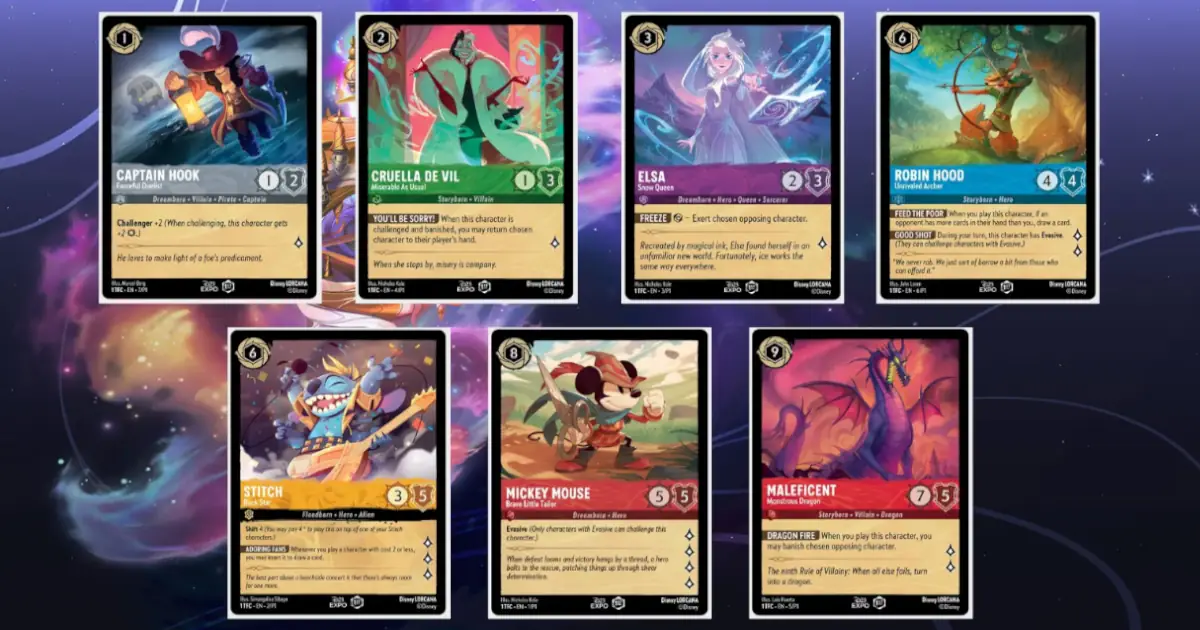Ravensburger, the company behind Disney Lorcana, has denied stealing and appropriating the card game concept by Upper Deck for its own upcoming trading card game. The studio said that the allegations were misplaced and that Upper Deck’s claims that Ravensburger stole and copied the game were unsubstantiated.
Disney Lorcana’s Co-designer in Crosshair of Former Studio
However, Upper Deck is now pressing on with its determination to sue both Ravensburger as well as the game’s co-designer Ryan Miller. The list of allegations levied against the company includes “seeking to profit from stolen property,” and the company’s president, Jason Masherah has said that his firm is committed to protecting its intellectual property.
Lorcana has been touted as a highly-successful yet-to-be-released TCG based on the Disney franchise and designed as a competitive trading card game that will seek to take on the likes of Magic: The Gathering, One Piece, Flesh and Blood. The lawsuit claims that Miller previously worked with Upper Deck and created the concept for Disney Lorcana there.
The game in question is referred to as Rush of Ikorr. According to Upper Deck, Miller and the company had an agreement that was reportedly signed by the designer and granted Upper Deck exclusivity over all rights to use. The agreement also required confidentiality on the part of Miller who was not supposed to disclose details about the concept and game to any party even if the contract was terminated.
Miller spent nearly three years working on Ikorr, starting in 2019 and finally quitting in 2021. Upper Deck claims that Miller has used his experience and knowledge from Ikorr to create the new game for Ravensburger. Some of the mechanics of the game have been called out as duplicated from Ikorr outright, with Upper Deck taking issue with the influence zone, questing and raiding gameplay mechanics and inkwell.
Ravensburger Will Defend Itself from Baseless Claims
All of these are supposedly the exclusive domain of Upper Deck and have been lifted from Ikorr, the plaintiff contends. Upper Deck now seeks punitive damages that would make it harder for the defendants to engage in “similar misconduct.” The community has had a fairly tepid response so far, as the case is indeed complicated.
Some lawyers and litigators have pointed out that it’s difficult to own a gameplay mechanic and patent it as such. Ravensburger has not minced its words at all calling the claims baseless and without merit and doubling down on its defense in “due time.” This case will undboutedly be one that we continue to follow and report on.

